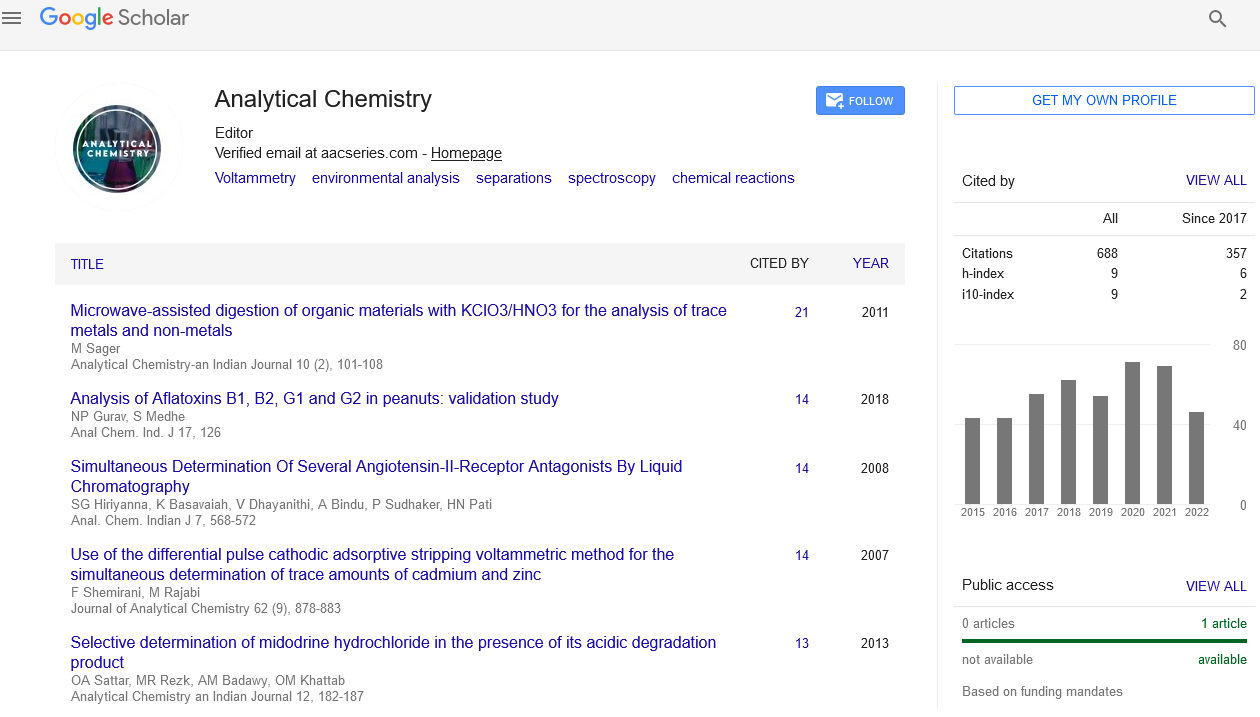Short commentary
, Volume: 21( 3)Global Epidemiological Situation And The Efficacy Of Drugs
- *Correspondence:
- Abhishek Tripathi
Department of Biotechnology,
Meerut Institute of Engineering and Technology,
Meerut,
India,
E-Mail: abhishek.tripathi.bt.2017@miet.ac.in
Received: June 03, 2021; Accepted: June 10, 2021; Published: July 10, 2021
Citation: Abhishek Tripathi. Global Epidemiological Situation And The Efficacy Of Drugs. Anal Chem Ind J. 2021;21(1):159
Abstract
Commentary
Covid-19 disease, which appeared in China in late 2019, is caused by SARS-CoV-2, a virus that belongs to the great coronavirus. Very frequent, they can cause a simple cold as well as a serious respiratory infection such as pneumonia, causing fatal epidemics as was the case with Sras or Mers and now with Covid-19 (for Coronavirus Disease). COVID-19 is an infectious disease caused by the last coronavirus that was discovered. This new virus and this disease were unknown before the outbreak appeared in Wuhan (China) in December 2019. Coronaviruses, which owe their name to the crown shape of the proteins that coat them, are part of a large family of viruses, some of which infect different animals, others humans. They are likely to cause a wide range of diseases. For humans, these diseases begin with a simple cold to a severe lung infection, responsible for acute respiratory distress . The Center of Disease Control (CDC), in a public document on its website published on 21st March 2020, informed that there are no US Food and Drug Administration (FDA)-approved drugs specifically for the treatment of patients with COVID-19. At present clinical management includes infection prevention and control measures and supportive care, including supplementary oxygen and mechanical ventilator support when indicated. An array of drugs approved for other indications as well as several investigational drugs are being studied in several hundred clinical trials that are underway across the globe. Very recent studies have tested and shown the effectiveness and use of two drugs (chloroquine and hydroxychloroquine) for the treatment of COVID-19 disease. According to the US Centers for Disease Control and Prevention, hydroxychloroquine and chloroquine are oral prescription drugs that have been used for the treatment of malaria and certain inflammatory conditions. Chloroquine has been used for malaria treatment and chemoprophylaxis, and hydroxychloroquine is used for the treatment of rheumatoid arthritis, systemic lupus erythematosus and porphyria cutanea tarda. WHO includes it on its list of essential medicines, meaning it should be kept affordable and accessible at all times. Both drugs have in-vitro activity against SARS-CoV, SARS-CoV-2, and other coronaviruses, with hydroxychloroquine having relatively higher potency against SARS-CoV-2. Studies revealed that it has potential broad-spectrum antiviral activities by increasing the endosomal pH required for virus/cell fusion, as well as interfering with the glycosylation of cellular receptors of SARS-CoV. According to Colson et al., 2020 the activity of hydroxychloroquine on viruses is probably the same as that of chloroquine since the mechanism of action of these two molecules is identical, and hydroxychloroquine was prescribed for long periods, which would be therefore the first choice in the treatment of SARS-CoV-2. For optimal treatment, it may be necessary to administer a loading dose followed by a maintenance dose. In systematic review appeared online in March 2020. It was carried out by a Chinese group on the effect of chloroquine in vitro, using Vero E6 cells infected with SARS-CoV-2 has a multiplicity of infection (MOI) of 0.05. The study demonstrated that chloroquine was very effective in reducing viral replication, with an effective concentration (EC) 90 of 6.90 μM which can be easily achievable with standard dosage, thanks to its favourable penetration in tissues, including in the lungs. The authors described that chloroquine is known to block viral infection by increasing endosomal pH and by interfering with the glycosylation of the SARS-CoV cellular receptor.

